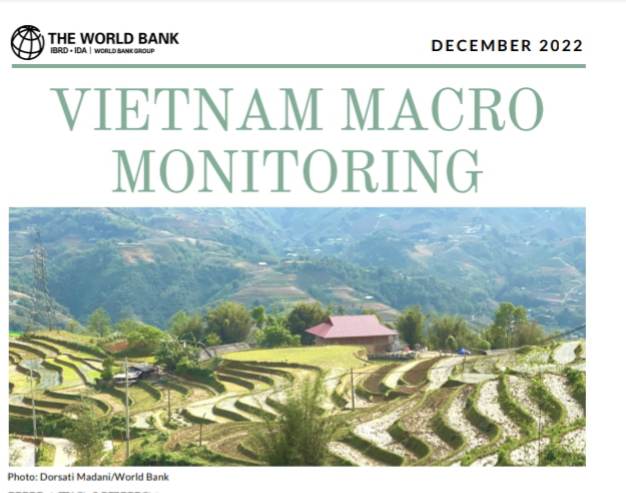WB report: Vietnamese Dong slightly strengthens in November
VGP - The two drivers of Viet Nam’s economic growth, exports and domestic demand, are moderating while the Vietnamese Dong slightly strengthened in November 2022.

The Viet Nam Macro Monitoring for December 2022 released by the World Bank showed that total foreign direction investment (FDI) commitment moderated to US$2.7 billion in November, down by 27.9 percent compared to the previous month.
Notwithstanding this decline, commitment in manufacturing rebounded sharply, increasing by 158 percent and 50 percent against the previous month and the same period last year, respectively.
Notably, FDI disbursement remained strong, growing by 14.4 percent year-on-year in November and by 15.1 percent for the first 11 months of 2022.
Regarding the growth of industrial production, the industrial production index increased by 5.3 percent in November. The moderation of overall industrial production growth masks a varied sub-sectoral performance.
For instance, manufacturing of computers, electronics and optical products rebounded, increasing from 2.6 percent in October to 5.6 percent in November.
Manufacturing of machinery also recovered from 9.8 percent to 17.2 percent between the same period.
According to the WB, the monthly budget balance registered a US$1.4 billion surplus in November after a brief fall into deficit in September and a small US$0.2 billion surplus in October. Total revenue increased by 5.9 percent, compared to a 6.7 percent decrease in October.
As of the end of November 2022, total revenue collected was already 16.1 percent higher than the planned total revenue while total expenditure amounted to 76.2 percent of planned total expenditure, resulting in a US$12.1 billion budget surplus for the first 11 months of 2022.
Given tight global financial conditions and weakening external demand, Vietnamese monetary authorities could consider allowing further flexibility in the exchange rate to accommodate external shocks, suggested WB specialists.
This could be complemented with judicious use of reference interest rates and prudent use of direct foreign exchange interventions to ensure foreign exchange reserves are protected.
Fiscal and monetary policy coordination will be critical to ensure price stability in light of accelerating domestic core inflation.
A more prudent and prioritized expenditure strategy should focus on ensuring investments in human capital and resilient and green infrastructure to help bolster economic potential and resilience, the WB recommended.
